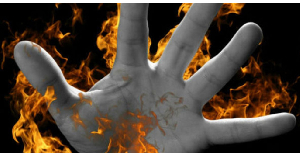The borders of Ghana, Niger and Mali are vulnerable to possible spread of the Ebola virus as passengers moving into Ghana say there are no health or immigration officials to screen travelers of the deadliest disease.
Station officers and passengers at the Niger and Mali lorry terminals at Tema Station in Accra said the borders are porous and officials there are only engaged in the inspection of yellow fever card, unofficially acquired on the spot at the cost of 4000 CFA Franc.
Mr Mousa Ali, a passenger to Niger, told the Ghana News Agency on Tuesday that, there are no Ebola medical checks at the Ghana border, but upon reaching the Togo boundary, Togolese officials subject all travelers to medical screening on the Ebola Virus Disease.
Mr Ali, who said he only heard about the world deadliest disease about a week ago on radio, could not tell how the disease spreads, it causes and preventive steps required.
Mr Mohammed Haruna, a passenger to Mali said “I hear the name Ebola but I don’t know how it is,” and that, he was not concerned about the disease so much, as his mind is preoccupied with the death of five of his brothers in recent times.
Mr Musah Natanga, station official, Niger, said the borders are not properly manned, making the spread of the Ebola disease imminent in Ghana and putting many travelers at high risk.
He called on government and the Ghana health authority to post health personnel to the borders to conduct thorough medical screening and step up immigration measures to prevent the disease from reaching Ghana.
The death toll from the worst ever outbreak of Ebola has reached 1,013 after another 52 people died in three West African countries, the World Health Organisation (WHO) said on Monday.
The total number of cases rose to 1,848, it said. The death toll from the worst ever outbreak of Ebola has reached 1,013 after another 52 people died in the three days to August 9 this year in three West African countries, the World Health Organization said on Monday.
The largest number of reported new deaths were in Liberia, where 29 people died, followed by 17 in Sierra Leone and six in Guinea, the WHO said in a statement on its website. The total number of cases rose to 1,848, it said.
Ebola first appeared in 1976 in two simultaneous outbreaks, in Nzara, Sudan, and in Yambuku, Democratic Republic of Congo, a village situated near the Ebola River, from which the disease takes its name.
The Ebola virus disease, formerly known as Ebola haemorrhagic fever, is a severe, often fatal illness in humans with fatality rate of up to 90 per cent.
The disease occurs primarily in remote villages in Central and West Africa, near tropical rainforests and transmitted to people from wild animals and spreads in the human population through human-to-human transmission.
Fruit bats of the Pteropodidae family are considered to be the natural host of the Ebola virus.
Severely ill patients require intensive supportive care as there is no licensed specific treatment or vaccine is available for use in people or animals.
General News of Wednesday, 13 August 2014
Source: GNA













